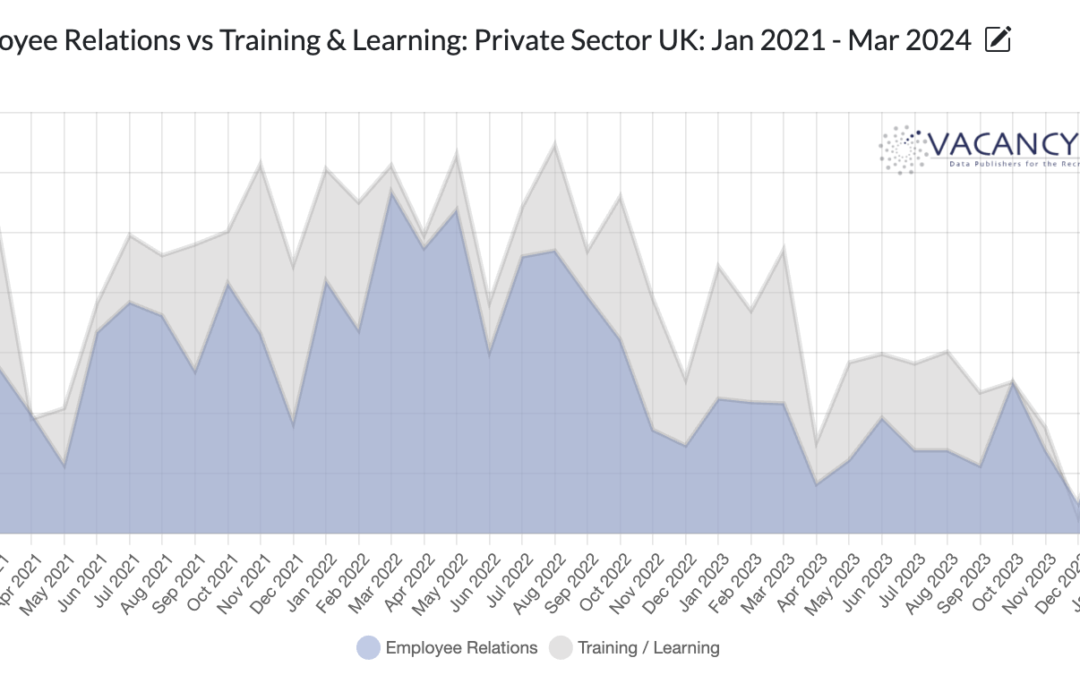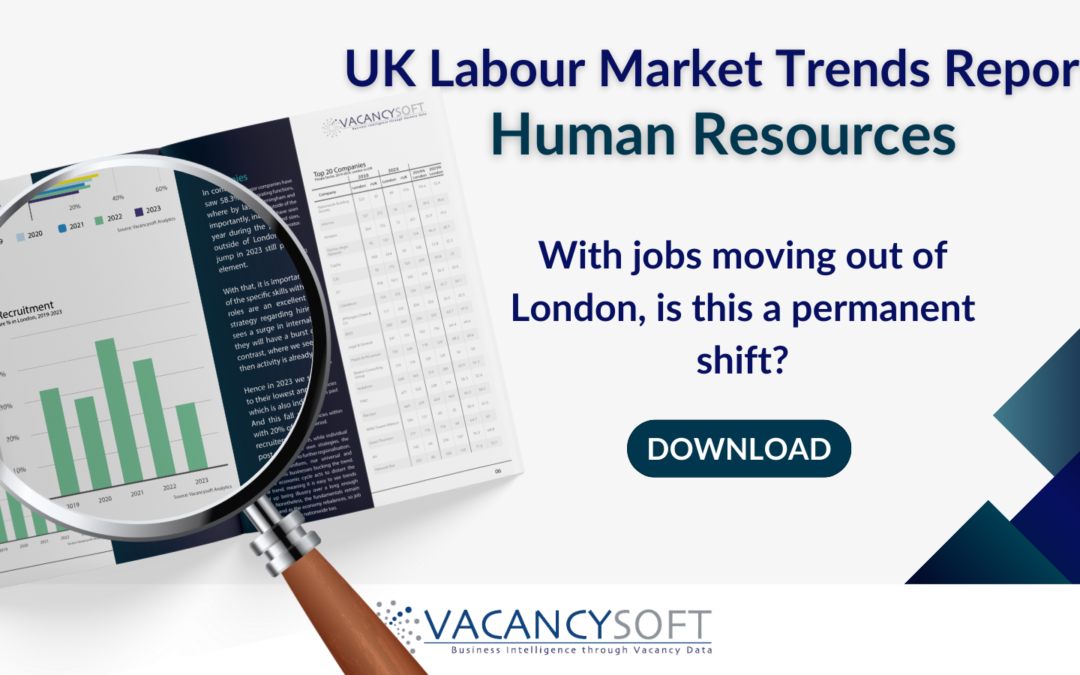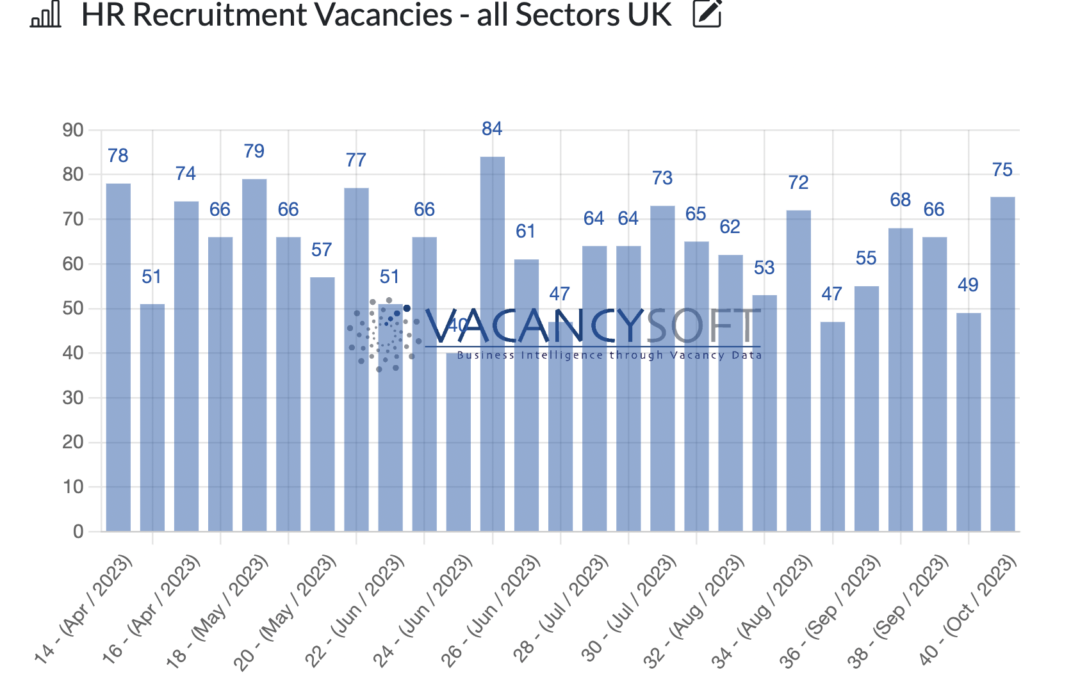
For the first time in over three years, this March, there were more vacancies for employee relations specialists than training/learning across the private sector in the UK. While this was just one month, the signs are that in April, it is set to repeat, at which point this could indicate corporations are shifting their priorities when it comes to their staff.

Post-pandemic economy shifting from London: HQ function vacancies down to 41.2% from 47.8% in 2019.

As we have touched on before many times, 2023 has been quiet compared to the mania of the last few years and job volumes have been significantly lower. This has led to talent teams within businesses being scaled back and given this is the most critical function for businesses looking to hire, it acts as a good indicator as to business confidence. When businesses increase hiring into internal recruiters, there is confidence in growth, when vacancies drop, this means there will be less hiring.

For increasing numbers of businesses, hybrid work is becoming the norm, where to add to that, we are also witnessing a significant surge in work-from-home (WFH) vacancies across all functions.
In 2019, only 0.44% of permanent vacancies posted on company websites career centres were marked as remote. Compare that to 2023, where remote vacancies have comprised 4.3% of the total so far. Put simply, remote vacancies have never had such a high share of the total before.

How are scientific vacancies faring in the Golden Triangle’s life sciences industry? Which sector had the best performance? Which are the skills most in-demand and which firms are the busiest? Download our new report to find out.







